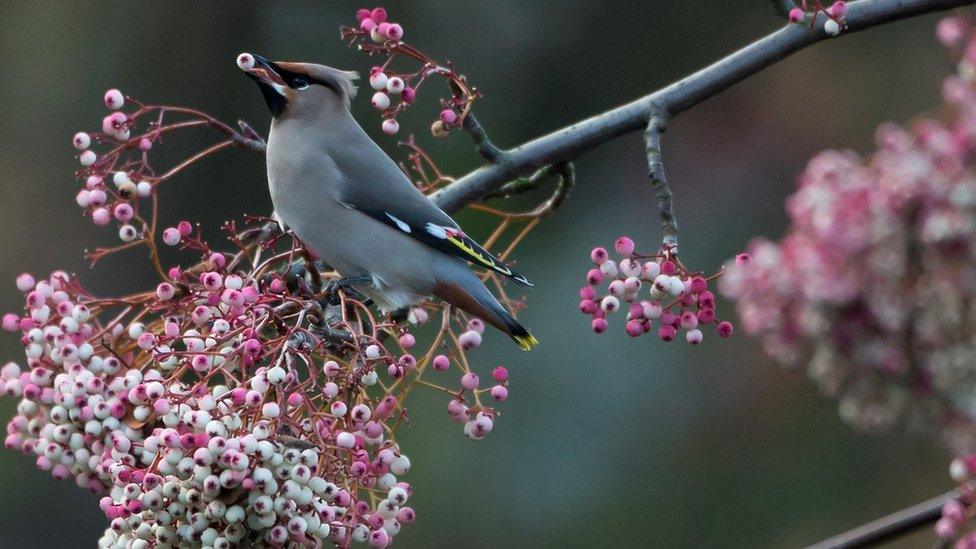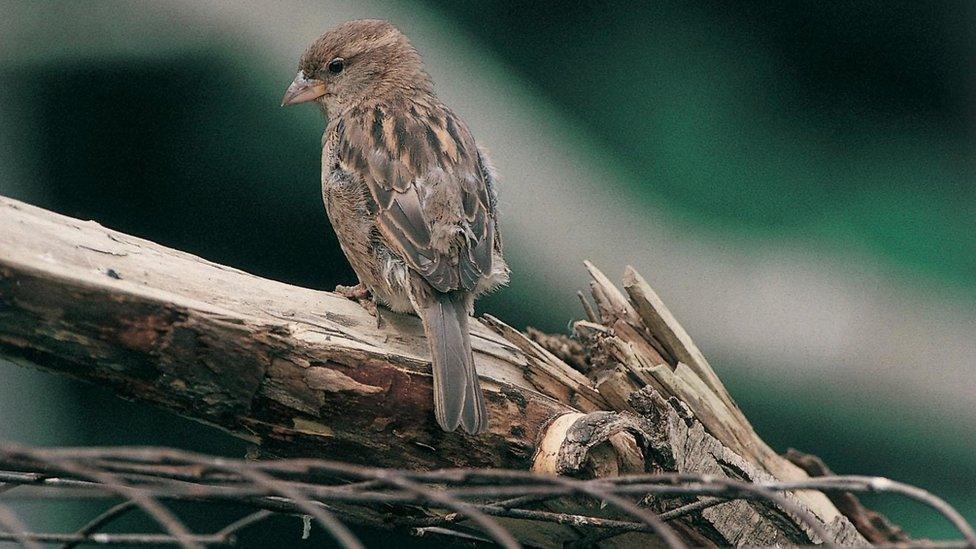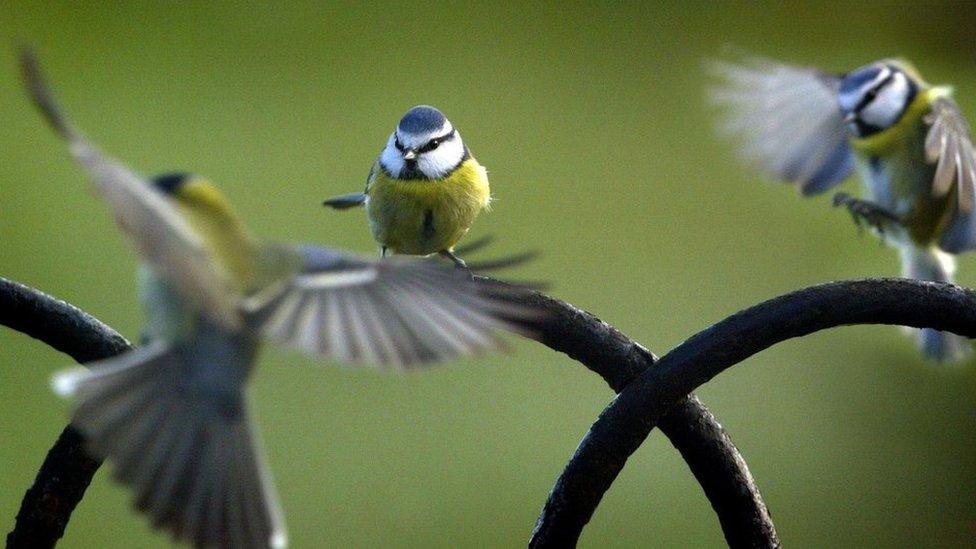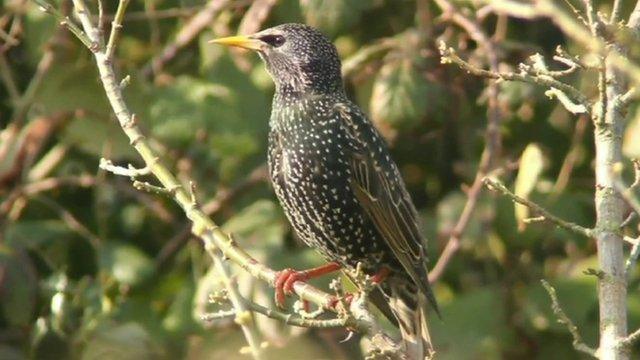Big Garden Birdwatch: 'Charismatic migrants' expected in UK gardens
- Published

Waxwings have been drawn from Scandinavia because of the UK's bumper berry crop
Unusual migrant birds could be spotted in UK gardens during the RSPB's annual birdwatch.
More than half a million people are expected to take part in this year's Big Garden Birdwatch, external, which takes place across the UK from Saturday to Monday.
The RSPB said people may be able to spot Scandinavian visitors such as waxwings, redwings and fieldfares.
The charity said the birds had left their homelands to feed on the UK's bumper berry crop.
'Charismatic migrants'
Waxwings - birds with dusky pink colouring with a black strip across the eye and a punk-like crest - have been arriving along the east coast of England and dispersing as far as Ireland and Wales.
They do not visit the UK every year, but arrive in droves - known as an "irruption" - every seven or eight years.
Households with rowan or crab-apple trees in their garden in particular should look out for the "charismatic migrants", the RSPB said.

House sparrows were the most commonly spotted bird in the survey last year
Last year, the house sparrow was the most commonly seen bird in UK gardens, although they have seen numbers tumble almost 58% since the Big Garden Birdwatch began in 1979.
The milder weather saw an increase last year in the number of small birds seen, such as long-tailed tits.
This year, the survey takes place over three days for the first time, with members of the public asked to spend an hour watching and recording the birds in their garden or a local public space, and then to send their results to the RSPB.
People taking part are also being urged to report some of the other wildlife they have seen in their gardens in the past year, including grass snakes, hedgehogs, stag beetles, stoats and moles.
Daniel Hayhew, RSPB conservation scientist, said: "With over half a million people now regularly taking part, coupled with over 30 years of data, Big Garden Birdwatch allows us to monitor trends and help us understand how birds are faring...
"Even if you see nothing during your Big Garden Birdwatch hour, that's important information too, so please let us know."
- Published30 January 2016

- Published24 January 2015
